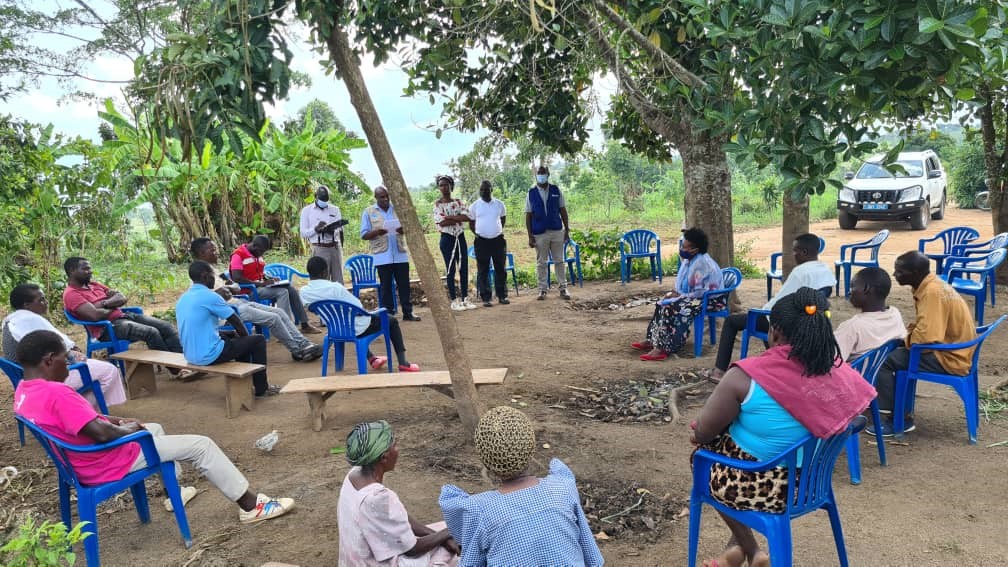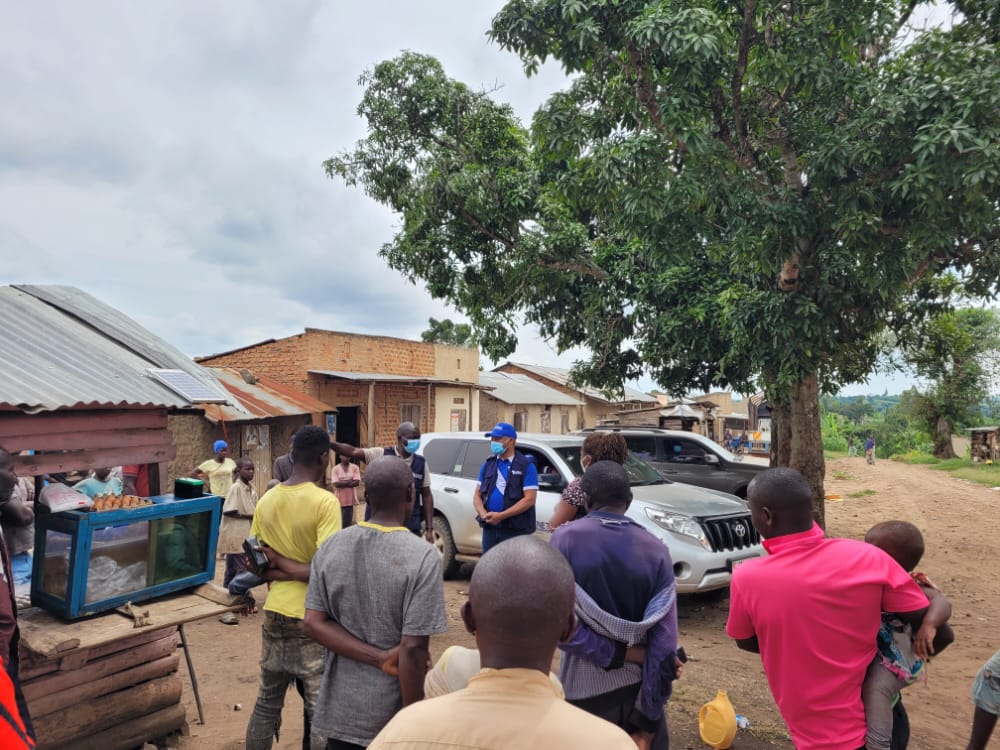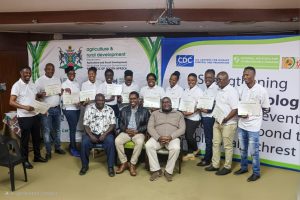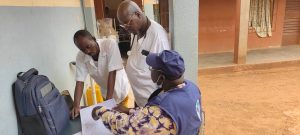AFENET supports response to the Ebola Virus Disease outbreak response in Uganda
-
by
AFENET

On 20 September 2022, the Uganda Ministry of Health declared an outbreak of Ebola Virus Disease (EVD)caused by Sudan ebolavirus species after confirmation at the Uganda Virus Research Institute (UVRI) of a case in Mubende District. The National Task Force (NTF) mobilized the National Rapid Response Team (NRRT) and partners to mount a coordinated, swift, and effective response to the EVD outbreak.
AFENET mobilized and deployed six members of the AFENET Corps of Disease Detectives (ACoDD) to support the response for a total of 198 person days. By mid-October 2022, the EVD outbreak had spread from Mubende District to Kassanda, Kyegegwa, Bunyangabu and Kagadi districts, and Kampala Capital City. An additional 5 ACoDD members were deployed for 140 person days to support the response in Kassanda District and Kampala Capital City.
The ACoDD deployment aimed to strengthen EVD surveillance through supervision, mentorship, and provision of technical support in contact tracing, alert management, active case search, community-based surveillance, risk communication and community engagement, infection prevention and control (IPC), and data management to support decision making at local and national levels.
The ACCoD teams were also tasked with activating district alert and verification systems and conducting trainings of health workers and Village Health Teams (VHTs) on surveillance, risk communication and community engagements.

Initial impact
Overall, ACoDD responders achieved their primary objectives of deployment. They established an alert and verification desk for evacuation of suspect cases in Mubende (grossing on average 110 alerts in a 24-hour period), Kagadi (8) and Kakumiro (11) Districts. The team also supported the set-up of an alert management system in Kassanda District. Alerts were verified in Kagadi (27), Kakumiro (34) and Mubende (over 3,000).
The teams also 252 trained health workers and 453 VHTs on event-based surveillance, cased-based surveillance, contact tracing and follow-up of 252 and 453 health workers and VHTs, respectively. Additionally, the team followed up EVD contacts (92 in Kakumiro and 68 in Kagadi districts).
With funding support from the Bill and Melinda Gates Foundation, the Africa Centres for Disease Control (Africa CDC) partnered AFENET and the Uganda Ministry of Health to train and retool close to 1,000 Village Health Teams (VHTs) in Kassanda District. After the training each VHT member was equipped with a T-Shirt, jacket, umbrella, pair of gum boots, bag (Backpack) and an infrared thermometer. The VHTs will be facilitated for a period of three months (November 2022 to January 2023) to conduct surveillance, health education and case finding and referral, to ensure containment of the outbreak in Kassanda District – the new epicenter and Uganda as a whole.
Challenges
During the course of the deployment, the following challenges were faced: inadequate personnel (epidemiologists and laboratorians) for field verification of suspects in communities, inadequate Personal Protective Equipment (PPE) for the field verification team, and inadequate number of vehicles for transporting the field verification teams to communities.
Lessons
Decision algorithm and alert verification tools were developed which reduced the time taken to make decisions and subsequently improved the turnaround time for evacuation of suspects from community to the Ebola Treatment Unit and/or safe and dignified burial (SDB) for dead suspects.
The team notes that it is possible to establish epidemiological links among cases in an outbreak but difficult to ascertain the index case using one methodology; triangulation of information about cases is key to reaching the index case and gaining a better understanding of epidemic evolution like ecological studies.
Risk communication & community engagement (RCCE), IPC and psychosocial support (PSS) coupled with surveillance in joint teams to community is key in this outbreak response.



